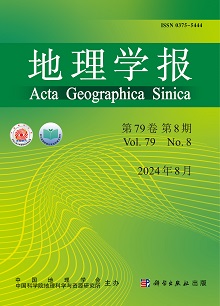Optimization of Multi-Source Remote Sensing Soil Salinity Estimation Based on Different Salinization Degrees
The timely and accurate monitoring of regional soil salinity is crucial for the sustainable development of land and the stability of the ecological environment in arid and semi-arid regions. However, due to the spatiotemporal heterogeneity of soil properties and environmental conditions, improving the accuracy of soil salinization monitoring remains challenging. This study aimed to explore whether partitioned modeling based on salinization degrees during both the bare soil and vegetation cover periods can enhance the accuracy of regional soil salinity prediction. Specifically, this study integrated in situ hyperspectral data and satellite multispectral data using spectral response functions. Subsequently, machine learning methods such as random forest (RF), extreme gradient boosting (XGBoost), support vector machine (SVM), and multiple linear regression (MLR) were employed, in combination with sensitive spectral indices, to develop a multi-source remote sensing soil salinity estimation model optimized for different salinization degrees (mild or lower salinization vs. moderate or higher salinization). The performance of this partitioned modeling approach was then compared with an overall modeling approach that does not distinguish between salinization degrees to determine the optimal modeling strategy. The results highlight the effectiveness of considering regional soil salinization degrees in enhancing the sensitivity of spectral indices to soil salinity and improving modeling accuracy. Classifying salinization degrees helps identify spectral variable combinations that are more sensitive to the construction of soil salinity content (SSC) models, positively impacting soil salinity estimation. The partitioned modeling strategy outperformed the overall modeling strategy in both accuracy and stability, with R2 values reaching 0.84 and 0.80 and corresponding RMSE values of 0.1646% and 0.1710% during the bare soil and vegetation cover periods, respectively. This study proposes an optimized modeling strategy based on regional salinization degrees, providing scientific evidence and technical support for the precise assessment and effective management of soil salinization.
相关推荐
- Evaluation of combined open ditch and subsurface drainage: Experimental data and optimization of specifications in arid Northwest China [2025-04-07]
- Can remotely sensed vegetation patterns signal dryland restoration success? [2025-04-07]
- A method to determine optimum ecological groundwater table depth in semi-arid areas [2025-04-07]
- A new approach for estimating spatial-temporal phreatic evapotranspiration at a regional scale using NDVI and water table depth measurements [2025-04-07]
- Assessing the Long-Term Evolution of Abandoned Salinized Farmland via Temporal Remote Sensing Data [2025-04-07]



